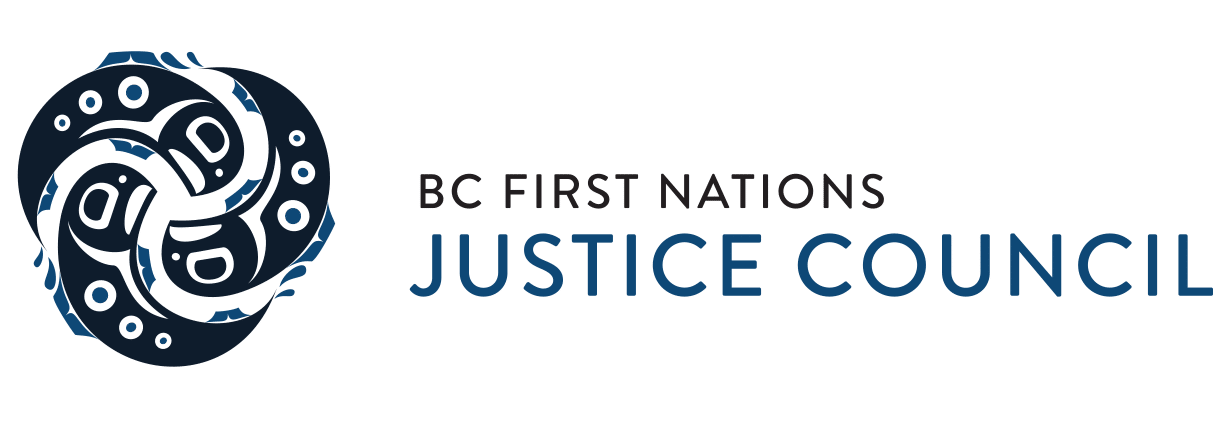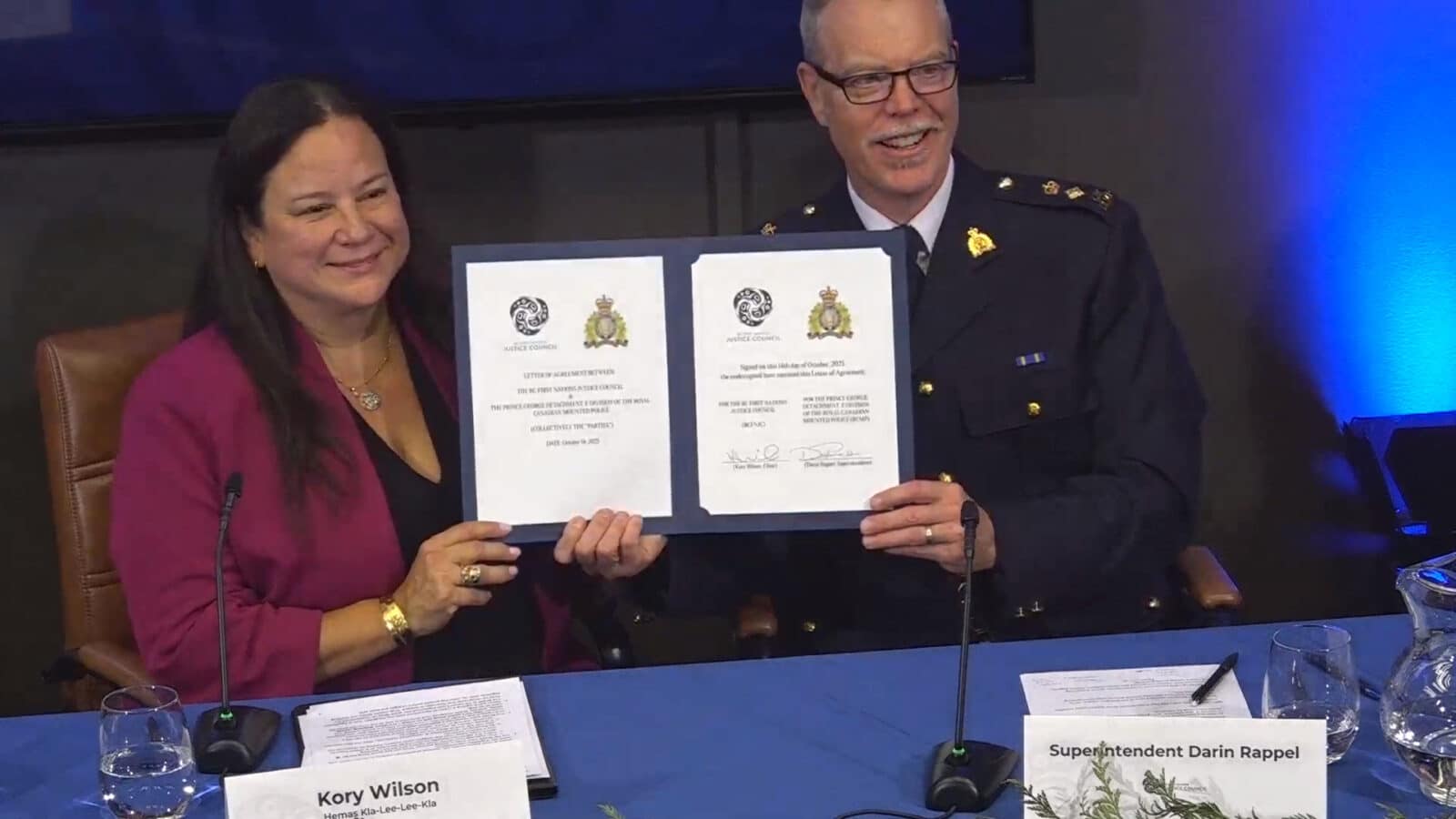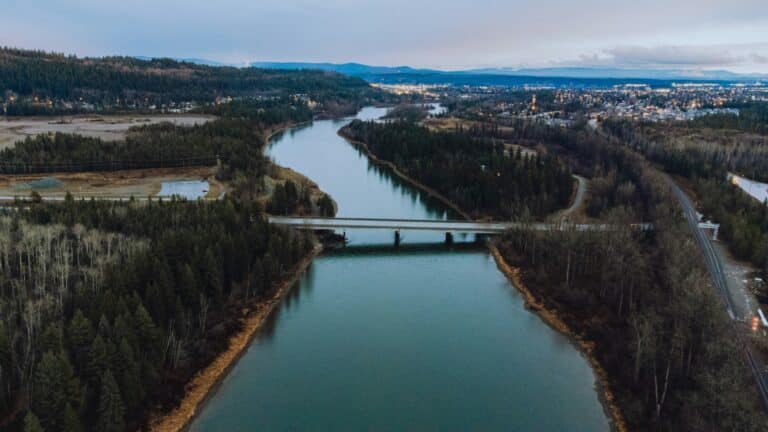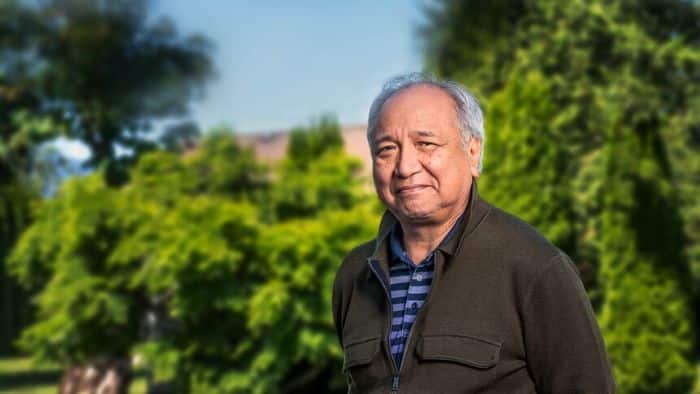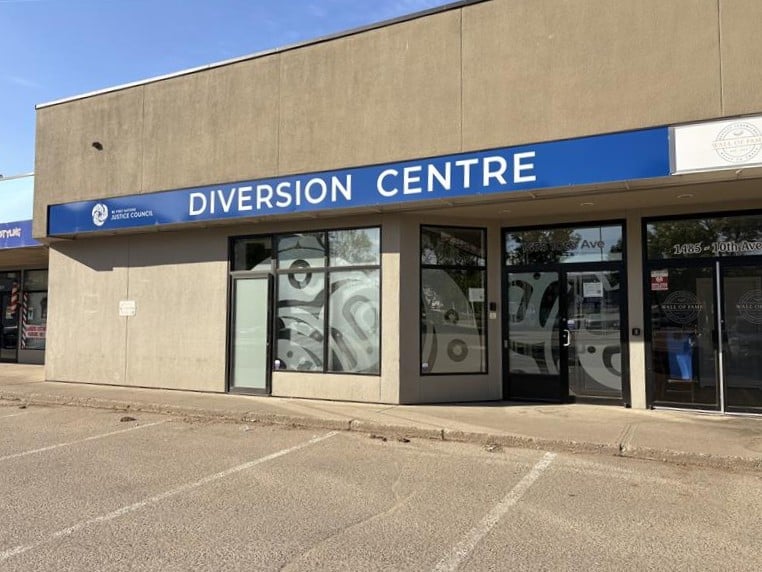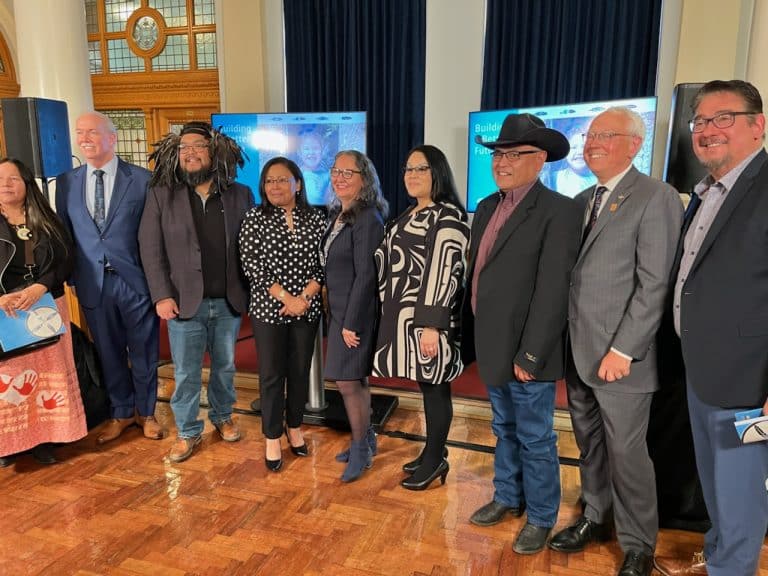LHEIDLI T’ENNEH TERRITORY (PRINCE GEORGE, B.C.)—The BC First Nations Justice Council (BCFNJC) and the Prince George RCMP have signed a letter of agreement, marking a milestone advancement in Strategy 1 of the BC First Nations Justice Strategy, which aims to address the overincarceration of Indigenous people through diversion.
BCFNJC Chair Kory Wilson (Hemas Kla-Lee-Lee-Kla) and Prince George RCMP Superintendent Darin Rappel signed the agreement at the Indigenous Diversion Centre (IDC) grand opening on Oct. 14, witnessed by Elders, First Nations leaders, government officials, and community members.
The collaboration between BCFNJC and the local RCMP outlined in the agreement is vital to the implementation of diversion services at the IDC, with the RCMP being the main referring partner to the pre-charge program.
The first-of-its-kind in Canada, the IDC is a therapeutic diversion model that focuses on the root causes of offending by providing a caring cultural environment where true rehabilitation and healing can occur. The IDC aims to intervene early to prevent re-offenses and provide participants with an alternate path away from harm.
While the IDC opened its doors with a soft launch of its post-release program in July, the diversion pilot project is now fully underway, with both pre-charge and post-release programming available to First Nations, Métis, and Inuit adults living in Prince George.
The pre-charge program diverts Indigenous people from being charged with eligible offences to the IDC instead, where they commit to following an individualized 90-day diversion plan to have their charges dropped. The post-release program supports Indigenous individuals after their release from provincial or federal custody to reintegrate into community.
Participants can join Ceremony, attend land-based and Elder teachings, learn skills in ‘Atsoo’s Kitchen (grandmother’s kitchen), and access social work support, clinical counselling, among other services.
Quotes
“This is a momentous advancement of Indigenous-led justice reform and a start to transforming the relationship between First Nations and policing.
Police are most often the first aspect of a person’s interaction with the justice system, and as the main referrer to the diversion centre, the RCMP is key to helping Indigenous folks access culturally appropriate supports and resources.
Our team is ready to work hard to realize the success of this diversion program with our partners, and to support healing, safety and equity for the Indigenous community of Prince George.”
—Kory Wilson (Hemas Kla-Lee-Lee-Kla), Chair, BCFNJC
“We are pleased to see the opening of this facility on our traditional territory, and with the support of the BC First Nations Justice Council and RCMP. This is further enhanced by the local leadership of our fellow Council member, Miranda Seymour. As a first of its kind strategy in B.C., we are eager to see the positive outcomes this type of support can drive to Indigenous peoples at all stages of their personal journey. We are proud to stand with the partners in the delivery of the new Diversion Centre.”
—Chief Dolleen Logan, Lheidli T’enneh First Nation
“The Prince George City RCMP is excited to work with the BC First Nation’s Justice Council in providing a community-based alternative to the criminal justice system. For certain types of crimes, where those causing the harm are found to be in the repeating cycle of criminality, police can consider the Indigenous Diversion Centre; a justice referral path, led by the BCFNJC, that addresses the root causes of offending and will help provide a pathway to ending recidivism and future contacts with police. Success at the individual level means success at the community level, increasing community safety with lasting solutions.”
—Superintendent Darin Rappel, Prince George RCMP
“The Northern and Indigenous Crime Prevention Fund supports crime prevention led by Indigenous communities for Indigenous communities. This program funds innovative and culturally-grounded initiatives like this one that focus on addressing the reasons people become involved in crime, and ultimately create safer and more secure communities.”
—The Honourable Gary Anandasangaree, Minister of Public Safety
-30-
Quick facts
- 36% of individuals in BC provincial custody self-identify as Indigenous, despite Indigenous people making up approximately 6% of BC’s adult population (BC Corrections).
- The Prince George Regional Correctional Centre is currently overcapacity, with 63% of inmates identifying as Indigenous.
- The IDC is funded by Public Safety Canada’s Northern and Indigenous Crime Prevention Fund (NICPF), which supports culturally sensitive crime prevention practices and promotes community safety approaches in Indigenous communities both on and off-reserve and in the North.
- Upholding the presumption of diversion is Strategy #1 in the BC First Nations Justice Strategy, developed in collaboration between the 204 First Nations of BC and the Province.
- BCFNJC is a member of the Standing Committee on Public Safety of the City of Prince George, which explores solutions to address the significant public safety issues facing Prince George, especially the downtown core.
- The Lheidli T’enneh are the original caretakers of their Lands, waterways and people, and their territory is home to a vibrant urban Indigenous community from many parts of B.C. and Canada.
ABOUT BCFNJC
The BC First Nations Justice Council was created by the BC Assembly of First Nations, the First Nations Summit, and the Union of BC Indian Chiefs who together form the First Nations Leadership Council (FNLC). BCFNJC represents the 204 BC First Nations on justice-related issues to bring about transformative change to the legal system. BCFNJC is guided by the unique and comprehensive BC First Nations Justice Strategy which was jointly developed by the BC First Nations Justice Council, BC First Nations communities and the Province of British Columbia. The Strategy advances 25 individual strategies along two tracks of change: reforming the current criminal justice system and restoring Indigenous justice systems, legal traditions, and structures.
Today, BCFNJC is an expanding non-profit organization guided by the vision and voices of Indigenous leadership, including our Elders and Knowledge Keepers. Our team members, who have diverse professional, cultural, and community expertise are working hard to implement the Justice Strategy and advance Indigenous self-determination over justice. With the direction and support of First Nations communities, work will continue to transform the mainstream colonial justice system and champion innovative, Indigenous-led justice solutions.
Quick links
Media Contact
Melanie Ritchot (she/her)
Email: [email protected]
Direct: 236-766-2065
